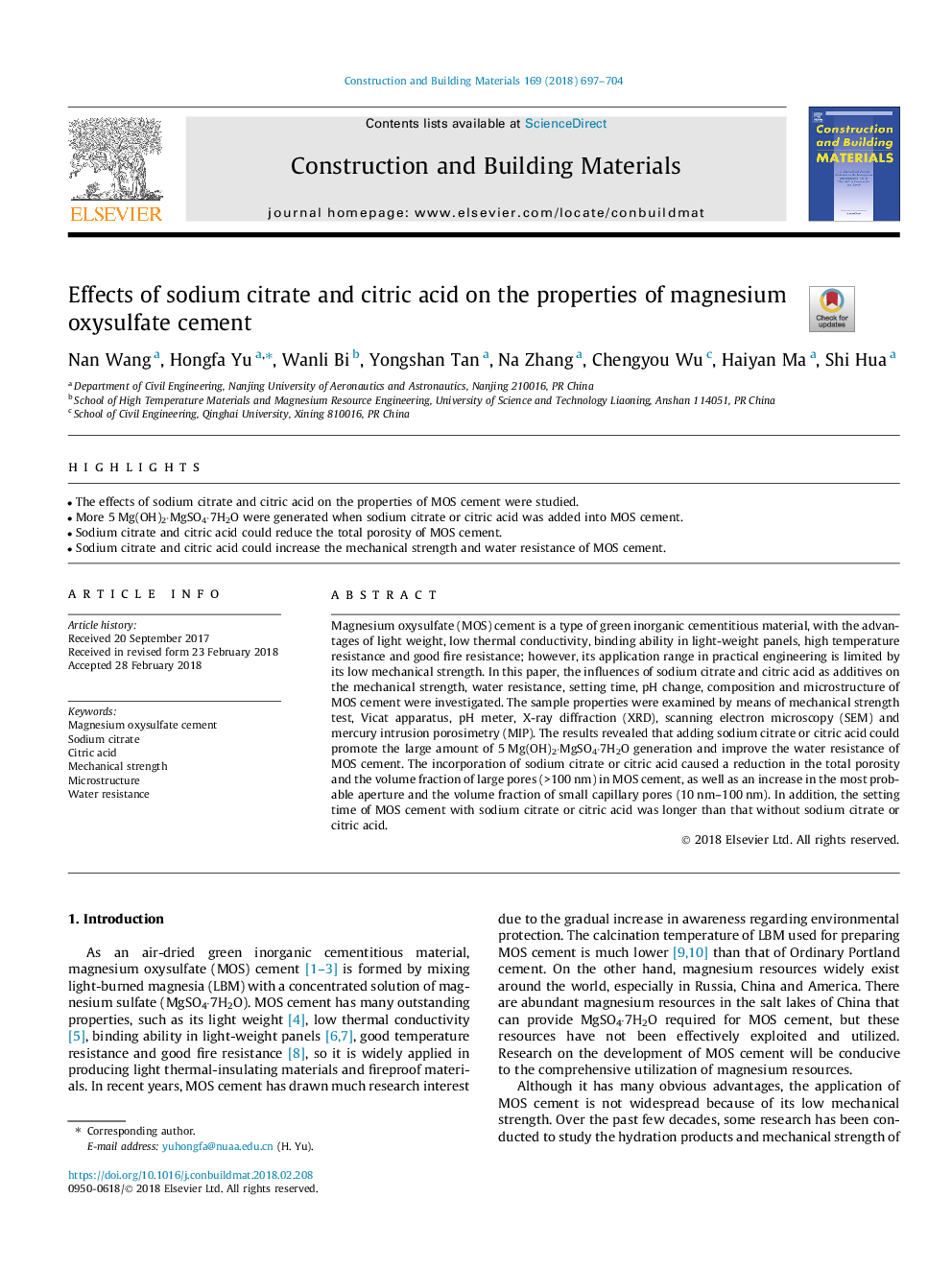| Article ID | Journal | Published Year | Pages | File Type |
|---|---|---|---|---|
| 6714621 | Construction and Building Materials | 2018 | 8 Pages |
Abstract
Magnesium oxysulfate (MOS) cement is a type of green inorganic cementitious material, with the advantages of light weight, low thermal conductivity, binding ability in light-weight panels, high temperature resistance and good fire resistance; however, its application range in practical engineering is limited by its low mechanical strength. In this paper, the influences of sodium citrate and citric acid as additives on the mechanical strength, water resistance, setting time, pH change, composition and microstructure of MOS cement were investigated. The sample properties were examined by means of mechanical strength test, Vicat apparatus, pH meter, X-ray diffraction (XRD), scanning electron microscopy (SEM) and mercury intrusion porosimetry (MIP). The results revealed that adding sodium citrate or citric acid could promote the large amount of 5â¯Mg(OH)2·MgSO4·7H2O generation and improve the water resistance of MOS cement. The incorporation of sodium citrate or citric acid caused a reduction in the total porosity and the volume fraction of large pores (>100â¯nm) in MOS cement, as well as an increase in the most probable aperture and the volume fraction of small capillary pores (10â¯nm-100â¯nm). In addition, the setting time of MOS cement with sodium citrate or citric acid was longer than that without sodium citrate or citric acid.
Keywords
Related Topics
Physical Sciences and Engineering
Engineering
Civil and Structural Engineering
Authors
Nan Wang, Hongfa Yu, Wanli Bi, Yongshan Tan, Na Zhang, Chengyou Wu, Haiyan Ma, Shi Hua,
